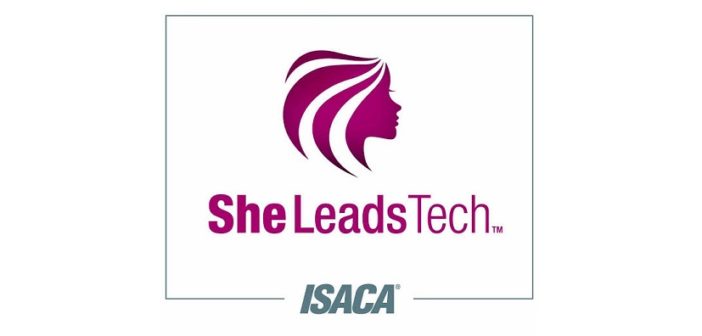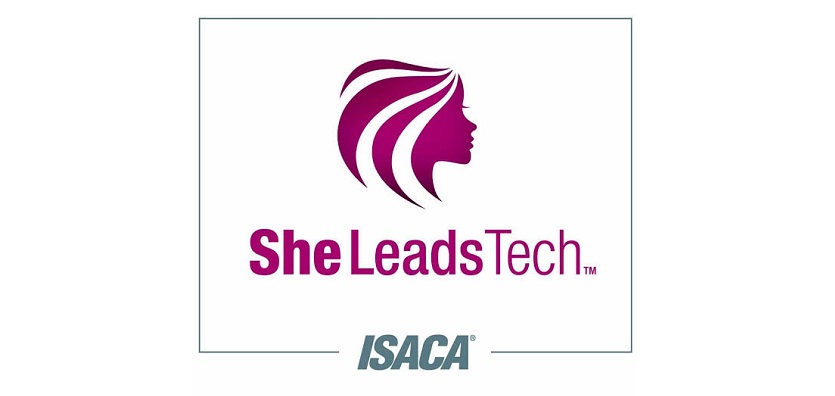
Amongst the intriguing mysteries of universe and life is the workings of the human brain. How does the predictable left hemisphere versus the intuitive right dominate our behavioural traits? How does the corpus collosum that links both influence our “feminine nurturing” versus “masculine protective” instinct? How does this delicate equilibrium bias our choices for food, games and work – such as creative writing versus computer programming?
To find out, we attended the SheLeadsTech Breakfast Seminar held on 1st November in the heart of the Singapore business district. After all, the venue suitably named “Left/Right Brain” function room could possibly be hinting at a session of “nature versus nurture” insights.
Neuroscience was not the focus of the seminar; instead, the conversations triggered thoughts in other areas.
ISACA’s SheLeadsTech was launched officially in Washington DC in October 2017, and its message of “raising awareness, preparing to lead and building global alliances” had been promoted by local chapters around the world. Jenny Tan (ISACA Singapore Chapter Treasurer) kicked off the program in Singapore in March 2019, with the latest edition sponsored by Deloitte Singapore.
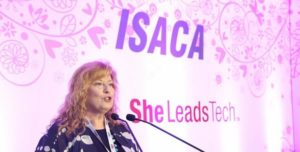
“Jo Stewart-Rattray, SheLeadsTech founding ISACA Director. Photo credit: https://www.cio.co.nz/article/663461/lesson-inclusive-leadership/”
What does SheLeadsTech mean in Singapore?
Strong support from society and community had allowed women to make such significant and meaningful strides over the years, that “we want to focus on female leadership giving back, with support from our male colleagues, family members, and friends”, said Jenny Tan.
But there are still “perceived Asian cultural and societal norms, such as the expectation of the man to provide and the woman to care for the family” to overcome in order to further encourage female leadership in the workplace in our region, said Cheryl Lim (Executive Director – Risk Advisory, Deloitte Singapore).
Traditions that evolve over centuries no doubt play a role in shaping our social and cultural views of “feminine” versus “masculine” work. Some such as preference for female child carers are unwritten, some such as succession lines are codified.
Adding to this multi-faceted topic is the rapid pace of technology that also blurs our perceptions. Artificial intelligence comes to mind. What does “AI” mean, how does it impact our human work?
Today’s innovations outpace our ability to grasp its meaning and potential in evolving our social and cultural context. Too often, in areas such as “technology related work”, we over-emphasize skill sets such as coding, and we also associate them with “masculine” traits.
We cannot be more wrong.
In a published article, Jo Stewart-Rattray, SheLeadsTech founding ISACA Director stressed “girls can code, but that won’t keep them in a job!” **
She explained “while there has been a tremendous effort to encourage young girls and women into STEM subjects, unfortunately too often, I find these bright women are discouraged by being pigeonholed into coding. There are a wide array of business careers using technology skills.”
Take Cybersecurity for instance.
At the Singapore International Cyber Week 2019, Ms Sim Ann (Senior Minister of State, Ministry of Culture, Community and Youth, and Ministry of Communications and Information) pointed out that, cybersecurity “is not just a technology issue. It involves people and processes” and “is a team sport”.
“We therefore need to build teams with varied experiences to tackle cybersecurity challenges effectively,” she added.
For example, an effective Cybersecurity incident response requires a team of technical (e.g. forensics, malware analysis), financial and legal skills (e.g. do the authorities need to be notified? What are the potential liabilities?) But managing the reputational impacts and intense media scrutiny also necessitates soft skills of communication, coordination, and interpersonal.
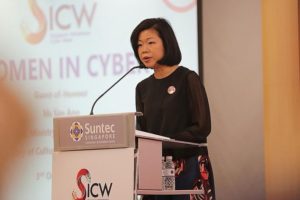
“Ms Sim Ann (Senior Minister of State, Ministry of Culture, Community and Youth, and Ministry of Communications and Information) at Singapore International Cyber Week 2019. Photo Credit: SICW 2019.”
If we broaden our views of “technology related work”, we find women trailblazers in deep technical areas:
Such as cryptography (Joan Clarke, whose role in the Enigma project to decrypt the secret German naval signals significantly reduced Allies’ losses during World War II) or in programming (Grace Hooper, whose vision that “It’s much easier for most people to write an English statement than it is to use symbols,” sparked the development of business-friendly computer languages).
We also find familiar writings by women on technological innovations.
One is Mary Shelly’s Frankenstein. Published during the era of the First Industrial Revolution (Industry 1.0), it depicted how a powerful machine exhibiting human-like traits escaped human control and became rouge – a topic just as relevant today in Industry 4.0.
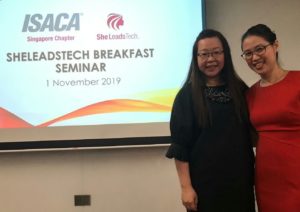
“Left: Jenny Tan (ISACA Singapore Chapter Treasurer).Right: Cheryl Lim (Executive Director – Risk Advisory, Deloitte Singapore). Photo Credit: ISACA Singapore”
Another is Ada Lovelace’s notes on Charles Babbage’s Analytical Engine, which included formulae and methods for calculating Bernoulli numbers. In demonstrating “as an example of how an implicit function may be worked out by the engine, without having been worked out by human head & hands first,” she offered a glimpse into a machine capable of universal computation – a concept that was as alien back then as it is familiar today.
But what the stories of these women also illustrate is that proven traits of success are just as important.
Their work, rooted in tireless research in technological innovations of their times, were also products of classic traits of success stories. While balancing the roles of mothers and wives, they broke out of the comfort zones, driven by curiosity and passion.
Singapore’s efforts and investments in cultivating curiosity and passion for technology included programs that run from primary school all the up to tertiary levels and beyond (e.g. the student ethical hacking program organised by Eileen Goh, Associate Director of IT Security at National University of Singapore Information Technology, also a ISACA Singapore Chapter member).
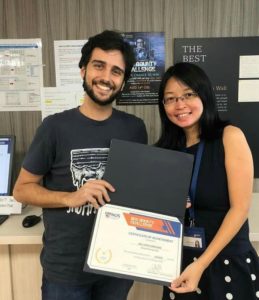
“More than 200 National University of Singapore (NUS) students participated in the 3 week long bug-bounty challenge – an initiative to secure its infrastructure and bridge the cybersecurity skills gap in students – in August 2019, hunting for security vulnerabilities in NUS digital infrastructure. Right – Elieen Goh Jin Siang, Associate Director of NUS IT Security and organizer for the Bug Bounty event, with the top award winner, left, Armando, student from School of Computing.Photo Credit: NUS bug bounty facebook post.”
Mentoring also plays a strong part, in addition to addressing the challenge of overcoming social and cultural expectations.
But sometimes, it is also a case of acknowledging our idleness to challenge our own perceptions – as I discovered at a recent visit to the A&E and my very pleasant surprise at seeing the almost equal representation of male and female nurses.
Or sometimes, it is also a case of survival instinct: competing with the awareness of our own physical and physiological strengths and abilities.
These, together with our brain wiring may explain our preferences for certain types of work – and food or games. So do traditions, as Kipling famously questioned if: “she can bring no more to living than the powers that make her great; as the Mother of the Infant and the Mistress of the Mate.”
To what extent each contributes given the unique political, economic and social context we live in is a fascinating challenge to face and address, and which will no doubt evolve, as technology continues to advance.
** https://www.smartcompany.com.au/people-human-resources/recruitment-hiring/attract-top-talent-look-no-further-own-backyard/.
Listen to Jo Stewart-Rattray, SheLeadsTech founding ISACA Director, Cybersecurity Weekly Podcast recorded on 2nd Sept 2019 with MySecurityMedia


